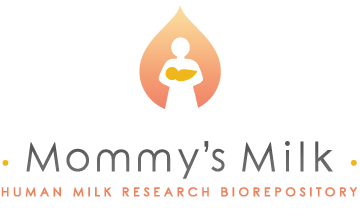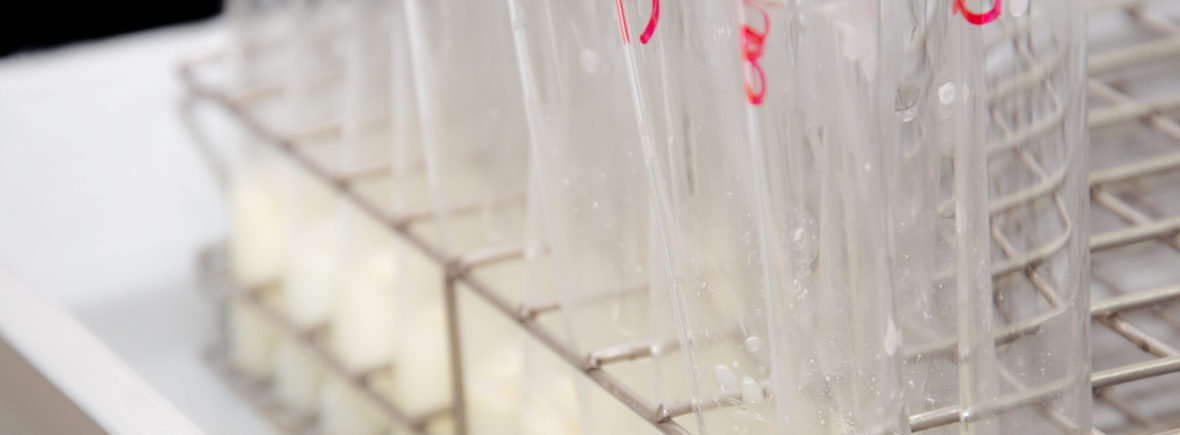We collaborate with researchers at UC San Diego as well as other universities and hospitals to analyze human milk samples and clinical data from our biorepository. Check out the projects that use Mommy’s Milk samples. Explore analyses, collaborator’s labs, and the variety of research topics involving human milk!

Environmental and Lifestyle Exposures
Heavy Metals in Human Milk: Donor Demographics and Exposure

Dr. Shannon Leung
UC San Diego
Goal: To measure the quantity of heavy metal levels in human milk samples. Identify the risk of heavy metal exposure in fetuses and children through the testing of those breast milk samples.
Update:
Further analyses will be conducted with a larger sample set. Pilot study preliminary findings: Abstract
Genotoxicants and the Breast DNA Adductome
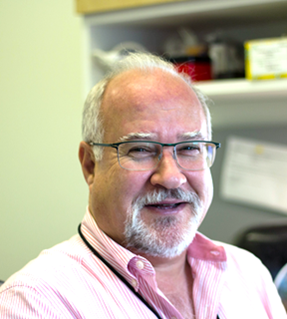
Dr. Robert Turesky
University of Minnesota
Goal: To analyze chemicals in the diet that may contribute to breast cancer by examining human milk from lactating parents who follow either omnivorous or vegetarian diets, with the aim of identifying the presence of potential mammary carcinogens found in cooked meats within the milk samples. Then, develop non-targeted exposomic methods to screen for an array of potential cancer-causing agents and tumor promoters in breast milk.
Update:
Samples have been received by Turesky Lab and are awaiting analysis.
Cannabidiol Exposure in Breastfed Infants from Maternal Marijuana Use

Dr. Cindy H.T. Yeung
The Hospital for Sick Children, Toronto, Ontario, Canada
Goal: Predict CBD exposure in breastfed infants from mothers taking CBD and CBD-containing products.
Publication:
Yeung CHT, Bertrand KA, Best BM, et al. Cannabidiol Exposure Through Maternal Marijuana Use: Predictions in Breastfed Infants. Clin Pharmacokinet. 2023;62(11):1611-1619. doi:10.1007/s40262-023-01307-6
Childhood Experiences and Marijuana Use During Lactation

Dr. Daniel Crouch
UC San Diego
Goal: Examine how adverse childhood experiences (ACEs) influence marijuana use in lactating individuals and whether positive childhood experiences (PCEs) modify this relationship.
Publication:
Crouch D, Chambers C, Bertrand K, Bandoli G. The Association Between Adverse and Positive Childhood Experiences and Marijuana Use During Lactation. Breastfeed Med. 2023;18(3):212-218. doi:10.1089/bfm.2022.0243
Non-Human Proteins in Human Milk

Dr. Kathleen Luskin
Scripps Clinic
Goal: Explore the presence of non-human proteins in milk by mass spectrometry to better inform how specific components in human milk can impact the development of or protection from allergies.
Publications:
Luskin K, Leibel S, Majid Ghassemian, et al. Analysis of Non-Human Proteins/Peptides in Human Breast Milk by Mass Spectrometry. The Journal of Allergy and Clinical Immunology. Published online February 1, 2020. doi:https://doi.org/10.1016/j.jaci.2019.12.432
Luskin K, Mortazavi D, Bai-Tong S, et al. Allergen Content and Protease Activity in Milk Feeds from Mothers of Preterm Infants. Breastfeed Med. 2022;17(11):947-957. doi:10.1089/bfm.2022.0115
Lead Analysis in Human Milk After Elevated Infant Blood Levels

Dr. Euhna Hoh
San Diego State University
Goal: Analyze the concentration of lead in human milk samples from lactating parents with normal blood lead levels whose children showed signs of lead exposure.
Publication:
Tran CD, Dodder NG, Quintana PJE, et al. Organic contaminants in human breast milk identified by non-targeted analysis. Chemosphere. 2020;238:124677. doi:10.1016/j.chemosphere.2019.124677
Cannabis in Human Milk
Dr. Brookie Best
UC San Diego
Goal: Measure the quantity of cannabinoids (∆9-THC, 11-OH-THC, CBD, and CBN) in human milk samples provided by lactating parents who reported recent marijuana use. Also evaluate child growth through medical record review, and child neurodevelopment through maternal report questionnaires and face-to-face testing.
Publication:
Bertrand KA, Hanan NJ, Honerkamp-Smith G, Best BM, Chambers CD. Marijuana Use by Breastfeeding Mothers and Cannabinoid Concentrations in Breast Milk. Pediatrics. 2018;142(3):e20181076. doi:https://doi.org/10.1542/peds.2018-1076
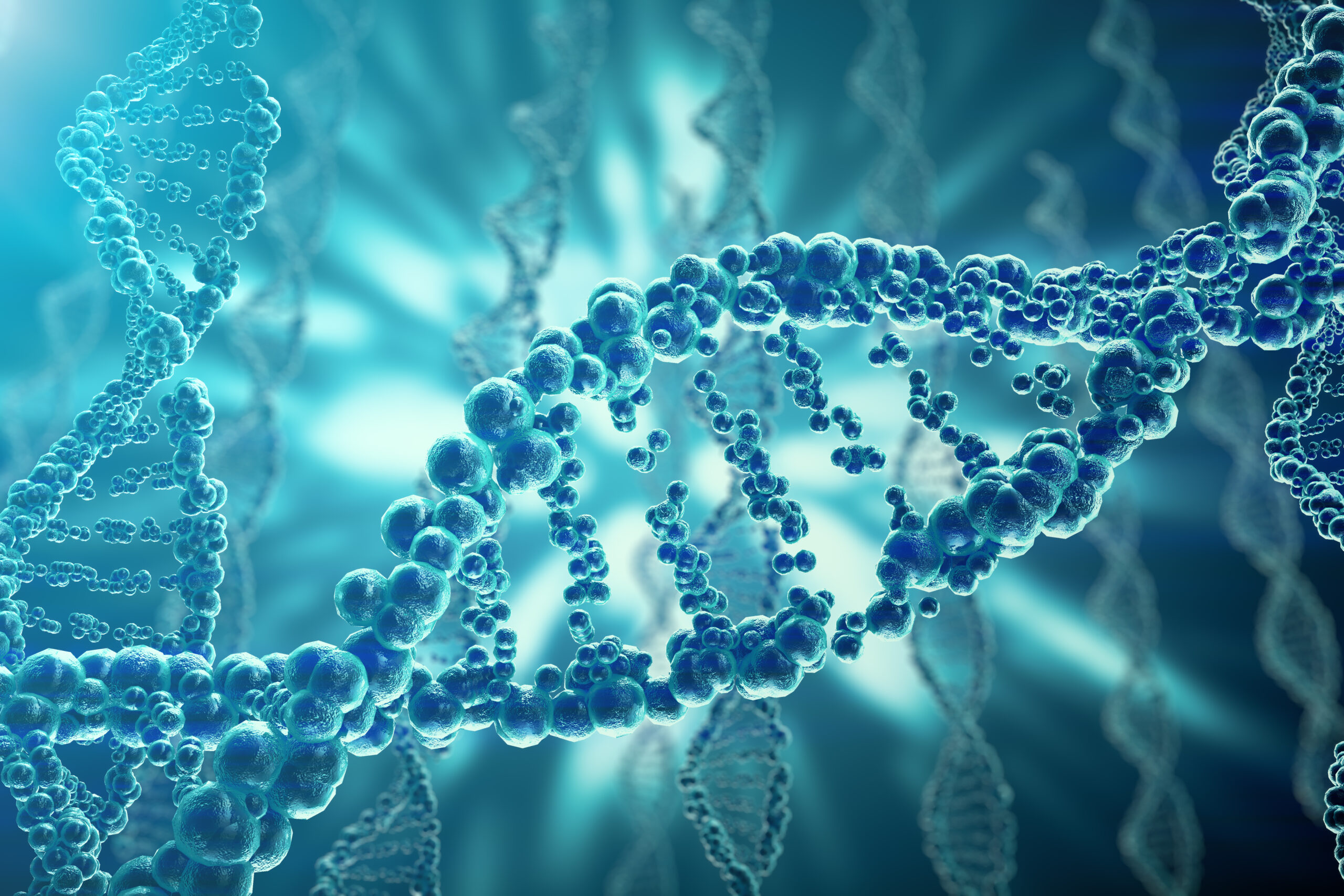
Genetic Markers
Maternal Stress, Depression, Anxiety: Effects on Milk Cortisol, miRNA, and Infant Growth
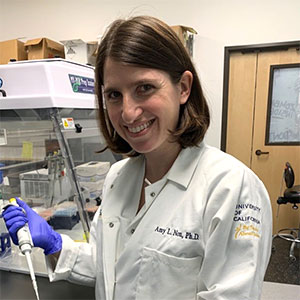
Dr. Amy Non
UC San Diego
Goal: Study associations between maternal perceived stress, depression, and anxiety on milk cortisol, miRNA expression levels, and infant growth across the postnatal period.
Update:
Dr. Non has analyzed 101 human milk samples from 78 mothers to determine 1) the best methodological approaches to isolating miRNA from exosomes in milk, and 2) the relationship between microRNAs in human milk and maternal mental health and stress. Her work is in the final analysis stages.
Plg-RKT in Human Milk

Dr. Lindsey Miles
Scripps Research
Goal: Develop an assay to evaluate whether Plg-RKT protein is detectable in membrane fractions from frozen milk samples. Plg-RKT protein may be involved in milk production, which could help us answer questions about lactating parents with milk supply challenges. Information from this study could potentially help lactating parents improve low milk supply.
Update:
Dr. Miles used 12 human milk samples to develop an assay to evaluate whether Plg-RKT protein is detectable in membrane fractions from frozen milk samples. In addition, she quantified cell content of fresh milk samples to determine the volumes of milk needed in order to perform PCR and Western blotting for Plg-RKT in cells in fresh samples.
Learn more about PIg-RKT
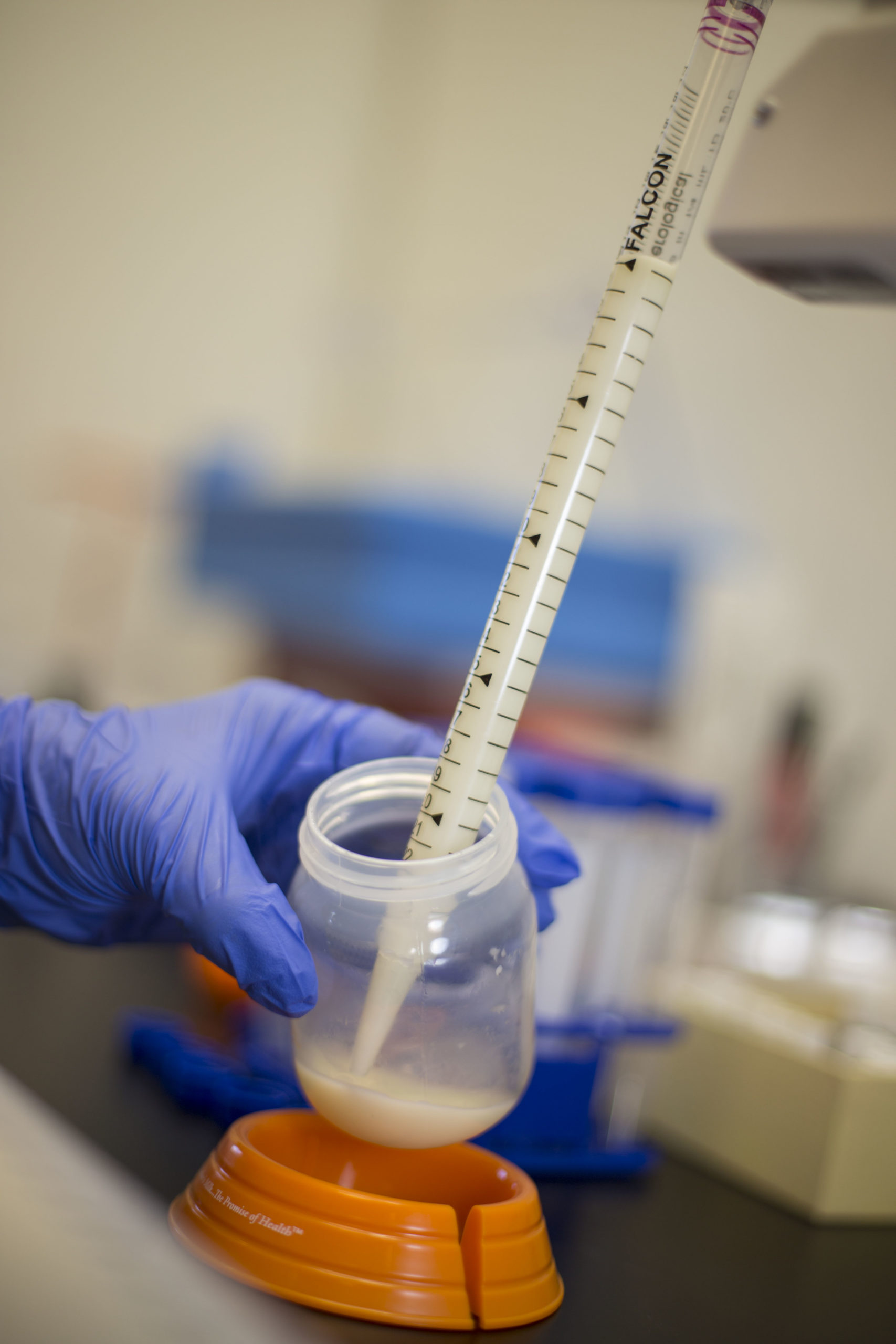
Human Milk Oligosaccharides
Impact of Autoimmune Diseases and Treatments on Human Milk Composition

Dr. Rashmi Dhital
UC San Diego/Vanderbilt University
Goal: Analyzing milk macronutrients, including carbohydrates, fat, protein, and total caloric content, in milk samples from breastfeeding mothers with autoimmune rheumatic diseases (ARDs) compared to those without. Additionally, explore how therapies used to treat ARDs may affect milk macronutrient composition. In a subset of patients with systemic lupus erythematosus (SLE), we will further investigate milk micronutrients and human milk oligosaccharides (HMOs). This study will lay the groundwork for future research on breast milk in the ARD population.
Update:
We studied milk composition, specifically fat, carbohydrate, protein and calories, among 63 breastfeeding mothers with rheumatoid arthritis (RA) and systemic lupus erythematosus (SLE) and compared them to 29 healthy controls matched on infant and maternal age. The final manuscript is in preparation.
Poster Presentation (Abstract) at the American College of Rheumatology (ACR) Convergence 2024.
Human Milk Oligosaccharides in Antidepressants and MABs

Dr. Lars Bode
UC San Diego
Goal: To examine the milk composition and oligosaccharide profile of human milk samples with exposure to antidepressants and mABs.
Update:
300 breast milk samples exposed to selective serotonin reuptake inhibitors (SSRIs) or monoclonal antibodies (mABs) had human milk oligosaccharide (HMO) analysis completed. The final analysis is in progress.
Maternal Psychological Health and Human Milk Oligosaccharide Composition

Dr. Hannah Reidy
Duke University
Goal: Evaluate associations between maternal symptoms of depression, anxiety, and stress and the concentrations of 19 prevalent human milk oligosaccharides in breast milk samples.
Publication:
Reidy H, Bertrand K, Chambers C, Bandoli G. The Association Between Maternal Psychological Health and Human Milk Oligosaccharide Composition. Breastfeed Med. 2024;19(11):837–47. doi:10.1089/bfm.2024.0179
Consistency and Variability of the Human Milk Oligosaccharide Profile in Repeat Pregnancies

Dr. Lars Bode
UC San Diego
Goal: Compare human milk oligosaccharide (HMO) concentrations in human milk samples provided by the same women following repeat pregnancies by assessing dissimilarities in HMO concentration profiles, as well as concentration trends in individual structures between pregnancies of each participant.
Publication:
Renwick S, Rahimi K, Sejane K, Bertrand K, Chambers C, Bode L. Consistency and Variability of the Human Milk Oligosaccharide Profile in Repeat Pregnancies. Nutrients. 2024;16(5):643. Published 2024 Feb 25. doi:10.3390/nu16050643
Human Milk Oligosaccharides Structure and Function

Dr. Lars Bode
UC San Diego
Goal: Measure the quantity of human milk oligosaccharides (HMOs) in human milk samples. Evaluate which maternal and infant characteristics are associated with the various HMOs that are measured in our samples.
Publication:
Bode L. Human Milk Oligosaccharides: Structure and Functions. Nestle Nutr Inst Workshop Ser. 2020;94:115-123. doi:10.1159/000505339
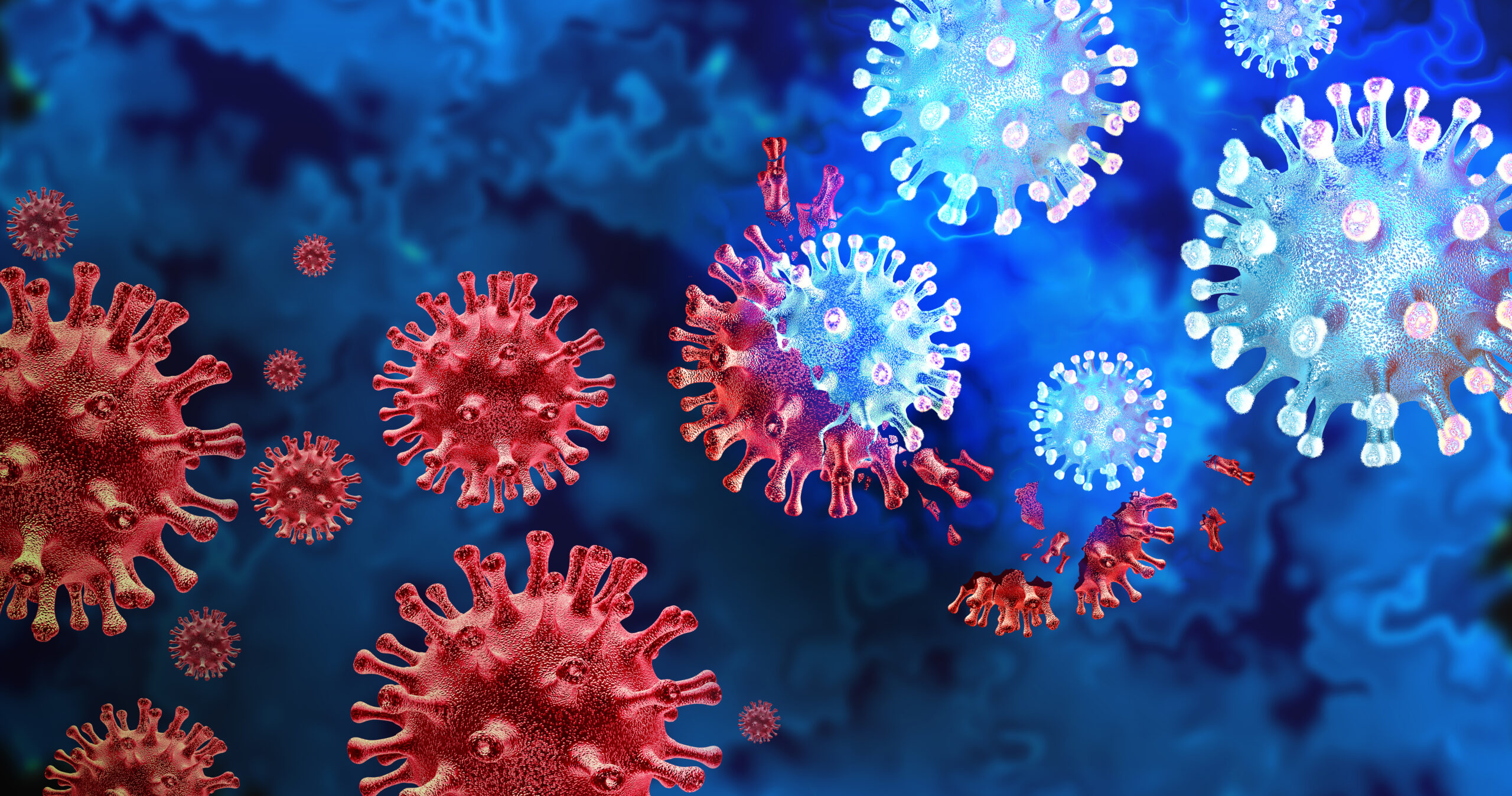
Infections
Detection of Norovirus-specific IgA in Breast Milk

Dr. Lam Nguyen
VaxArt
Goal: Develop and optimize an MSD assay to detect norovirus-specific IgA from breast milk. This will aid in the development of a vaccine that induced Norovirus antibodies in breast milk which would be of great value to public health.
Breast Milk Infectious Disease Test via GFET-aptamer Biosensor
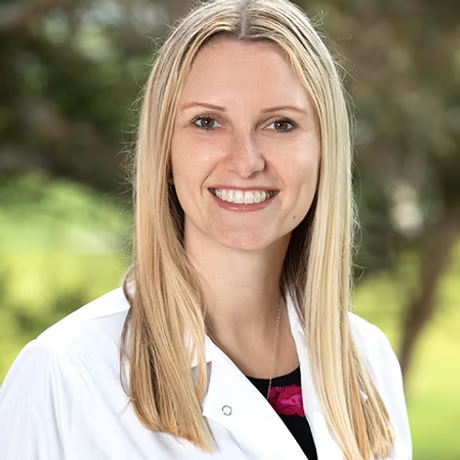
Dr. Sandra Leibel
UC San Diego
Project 1:
Goal: Examine the role of breastfeeding and maternal diet in the development of food allergies in premature infants.
Publication:
Luskin K, Leibel S, Majid Ghassemian, et al. Analysis of Non-Human Proteins/Peptides in Human Breast Milk by Mass Spectrometry. The Journal of Allergy and Clinical Immunology. Published online February 1, 2020. doi:https://doi.org/10.1016/j.jaci.2019.12.432
Project 2:
Goal: To validate GFET-based sensors for detecting antigens, biomarkers (IFN-γ, IL-6, TGF-β), and viruses (HIV, CMV, Hepatitis B) in whole milk, isolated fractions, and breast milk. Cross-validation with complementary methods will compare detection efficacy between natural and pasteurized milk.
Update:
Study analysis is ongoing.
The Transfer of Galcanezumab into Breast Milk

Dr. Riley Bove
UC San Francisco
Goal: To assess the transfer of galcanezumab into maternal breast milk and evaluate infant outcomes when the mother is treated with galcanezumab.
Update:
Samples have been received by Bove Lab and are awaiting analysis.
Heterogeneity of Maternal Milk Antibacterial Immunoglobulin A Response

Dr. Timothy Hand

Dr. Timothy Hand and Dr. Chelsea Johnson
University of Pittsburgh Medical Center
Children’s Hospital of Pittsburgh
Goal: Evaluate the heterogeneity of human milk from lactating parents with multiple pregnancies by characterizing potential shifts in the maternal milk IgA repertoire over the course of multiple pregnancies.
Publication:
Johnson-Hence CB, Gopalakrishna KP, Bodkin D, et al. Stability and heterogeneity in the antimicrobiota reactivity of human milk-derived immunoglobulin A. J Exp Med. 2023;220(8):e20220839. doi:10.1084/jem.20220839
Mammary Lymphocyte Expansion and Intestinal Inputs Shape T Cell Dynamics in Lactogenesis

Dr. Deepshika Ramanan
Salk Institute
Goal: Analyze T cells, specifically IELs, and test whether they are present in human breast milk by flow cytometry. Fresh milk samples were collected from participants and immediately transferred to be processed by removing milk fat followed by staining for T cell and IEL specific markers, and analyzing by flow cytometry.
Publication:
Jaquish, A., Phung, E., Gong, X. et al. Mammary intraepithelial lymphocytes and intestinal inputs shape T cell dynamics in lactogenesis. Nat Immunol 26, 1411–1422 (2025). https://doi.org/10.1038/s41590-025-02218-3
Characterization of SARS-CoV-2 Antibodies in Human Milk


Dr. Lars Bode
UC San Diego
Mother-Milk-Infant Center of Research Excellence (MoMi Core)
Dr. David Camerini and Dr. Joe Campo
The Antigen Institute (ADI)
Goal: Analyze human milk samples to establish the presence of SARS-CoV-2-specific IgA and IgG. Additionally, characterize the specific antigenic regions of SARS-CoV-2 proteins that were reactive with antibodies in human milk from lactating parents with confirmed SARS-CoV-2 infection.
Publication:
Bode L, Bertrand K, Najera JA, et al. Characterization of SARS-CoV-2 antibodies in human milk from 21 women with confirmed COVID-19 infection. Pediatr Res. 2023;93(6):1626-1633. doi:10.1038/s41390-022-02360-w
No Evidence of Infectious SARS-CoV-2 in Human Milk

Dr. Paul Krogstad
UC Los Angeles
Goal: Given the uncertainty surrounding the potential transmission of SARS-CoV-2 through breastfeeding, the goal is to analyze human milk samples from 110 women for the presence of the virus.
Publication:
Krogstad P, Contreras D, Ng H, et al. No Evidence of Infectious SARS-CoV-2 in Human Milk: Analysis of a Cohort of 110 Lactating Women. Preprint. medRxiv. 2021;2021.04.05.21254897. Published 2021 Apr 7. doi:10.1101/2021.04.05.21254897
Evaluation for SARS-CoV-2 in Human Milk from Infected Lactating Women

Dr. Lars Bode
UC San Diego
Dr. Grace Aldrovandi, Dr. Nicole Tobin, and Dr. Paul Krogstad
UC Los Angeles
Goal: Examine human milk samples for the presence of SARS-CoV-2, the virus that causes COVID-19, using RT-PCR and/ or viral culture. Milk samples that contained viral RNA were examined for the presence of subgenomic coronavirus RNA, which is a marker of infectivity.
Publication:
Chambers C, Krogstad P, Bertrand K, et al. Evaluation for SARS-CoV-2 in Breast Milk From 18 Infected Women. JAMA. 2020;324(13):1347-1348. doi:10.1001/jama.2020.15580
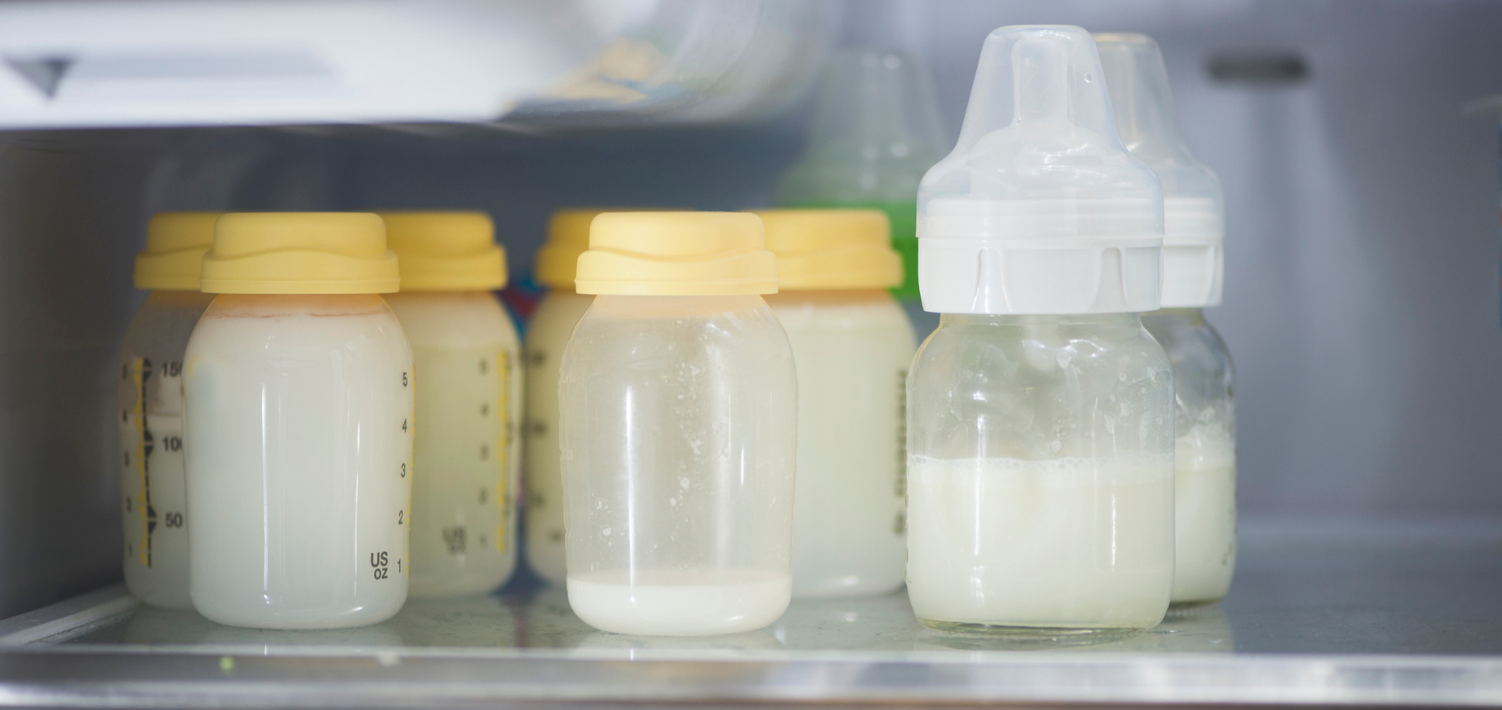
Lipids
Early Nutrition and Health: Lipid Composition and DNA Methylation in Neonates

Dr. Theresa M. Casey
Purdue University
Goal: Measure lipid composition of infant cheek cells and maternal milk and collecting information on infant feeding practices to determine the relationship between milk fat composition, lipid composition of infant cells and nutrition the first weeks postnatal. Also explore neonate DNA methylation patterns of buccal cells to determine if they are related to infant feeding practices. This information may provide insight into the connection between early life nutrition and long-term health.
Update:
We collected milk and buccal cell swabs from 60 mother-infant pairs at birth and 3 weeks post-partum. To date, we have measured the lipids in all the buccal swabs, and will begin extraction of milk samples in April 2025.
Bioactive Lipids in Human Milk

Dr. Mohit Jain
UC San Diego
Goal: Measure bioactive lipids in human milk, which may enhance or prevent the development of early childhood disease, including asthma and allergies.
Update:
Sample analysis has been completed.
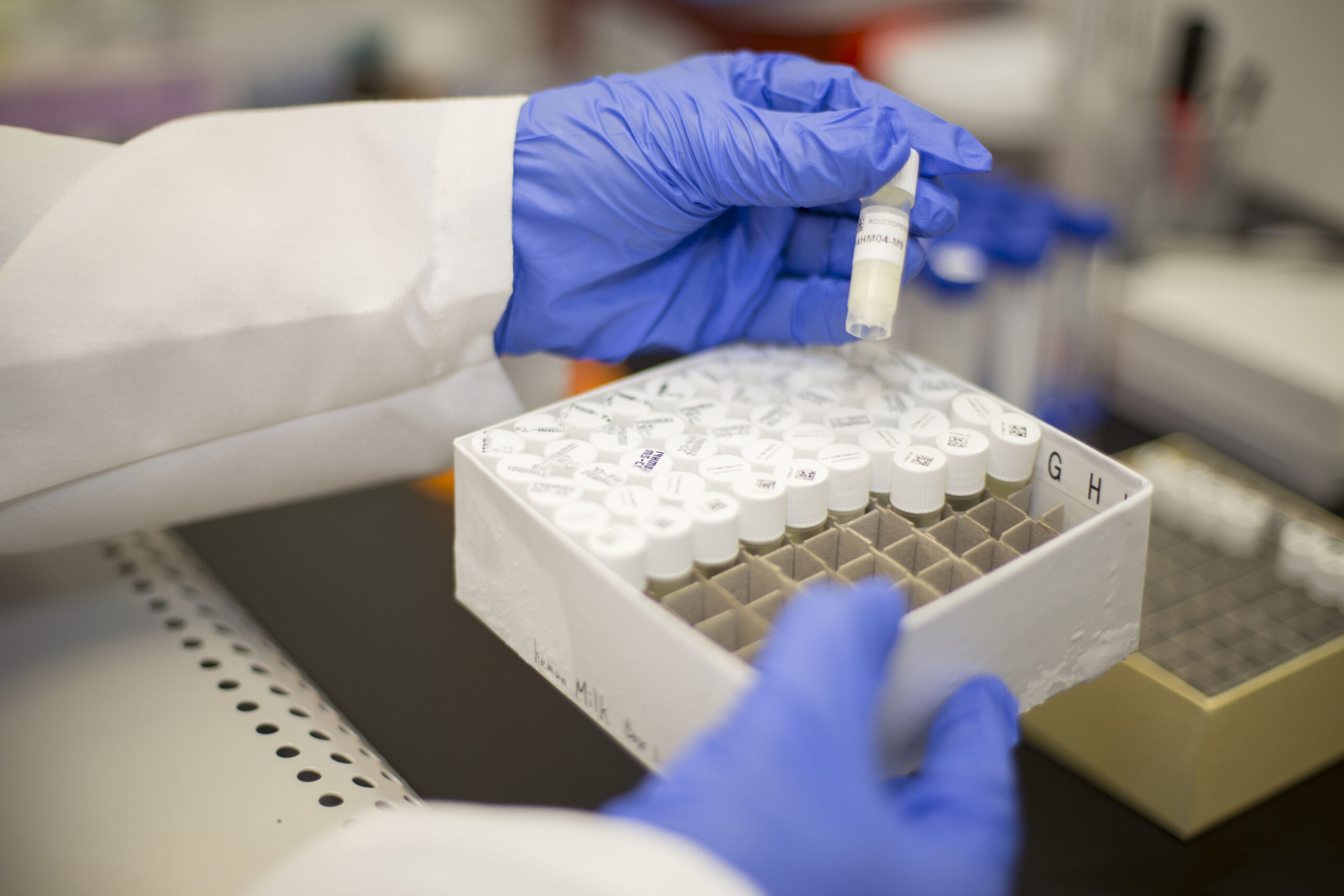
Macronutrients
Effects of Skimming Milk on Human Milk Composition

Dr. John Miklavcic
Chapman University
Goal: Evaluate the effects of skimming milk on human milk composition which will be beneficial to practitioners working with newly diagnosed VLCAD or chylothorax patients so that these patients may still receive the benefits of human milk nutrition.
Effects of Maternal Medications on the Composition of Human Milk
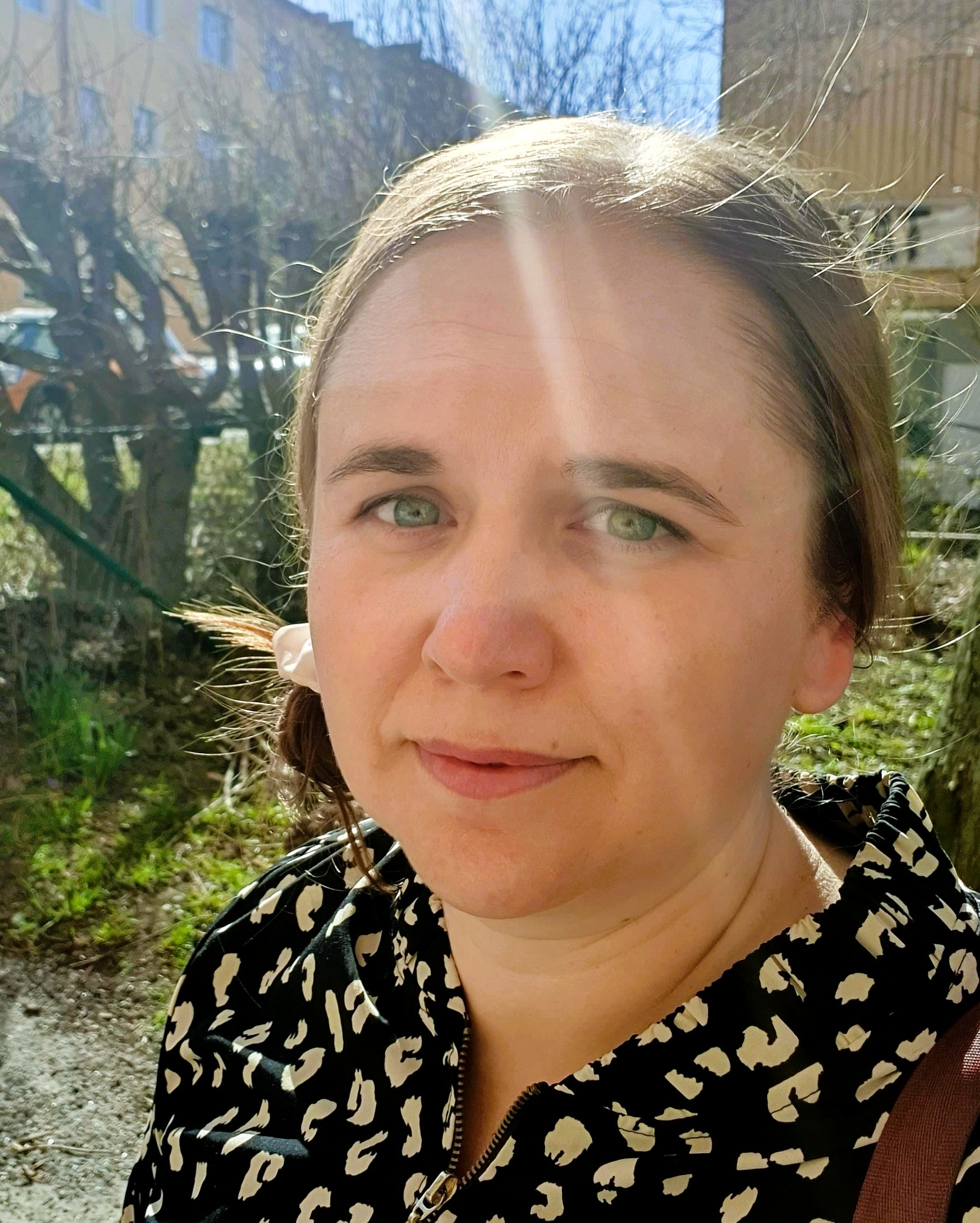
Dr. Essi Whaites Heinonen
Karolinska Institutet, Stockholm, Sweden
Goal: Study whether chronically taken maternal medications such as antidepressants and anti-inflammatory medications could affect the composition of human milk. Specifically, the analysis compared the levels of macronutrients (carbohydrates, fat, and protein) measured in samples of human milk from mothers with and without these chronic medications.
Publication:
Whaites Heinonen E, Bertrand K, Chambers C. Macronutrients in Human Milk Exposed to Antidepressant and Anti-Inflammatory Medications. JAMA Netw Open. 2025;8(1):e2453332. doi:10.1001/jamanetworkopen.2024.53332
The Effect of Cannabis Consumption During Lactation on the Macronutrient Concentrations in Breast Milk

Dr. Priyadharshini Narayanan
UC San Diego
Goal: Explore how cannabis use during lactation affects breast milk macronutrients by comparing breastmilk samples with detectable cannabis metabolites to those with no detectable metabolites.
Publication:
Narayanan P, Bertrand K, Waalen J, Chambers C, Ferran K, Bandoli G. The Effect of Cannabis Consumption During Lactation on the Macronutrient Concentrations in Breast Milk. Breastfeed Med. 2025 Jan;20(1):33-41. doi: 10.1089/bfm.2024.0083. Epub 2024 Nov 12. PMID: 39530127.

Medications & Vaccinations
MABs and Sertraline in Human Milk

Dr. Jeremiah Momper
UC San Diego
Goal: To address safety and potential clinical outcomes following exposure to selected maternal therapeutics, including monoclonal antibody medications and antidepressants by developing a common analytic lab platform for the quantitative analysis of small molecule and large molecule therapeutics in human milk.
Update:
300 breast milk samples exposed to selective serotonin reuptake inhibitors (SSRIs) or monoclonal antibodies (mABs) had pharmacokinetic (PK) analysis completed. The final analysis is in progress.
Human Milk Diversity and Impact of Maternal Antibiotic Use

Dr. Christina Chambers
UC San Diego
Goal: To learn whether and/or how prescribed antibiotics that are taken by a lactating parent affects human milk, and whether they have any effect on a baby’s growth and development.
Update:
We enrolled 450 women at baseline between birth and 6 months of age. From the 450 women at baseline, we enrolled 40 women who started an antibiotic after baseline and 40 women who we matched on infant age and sex and collected additional samples at multiple time points. We have completed metabolomic and microbiome analyses on all samples to date. The pharmacokinetic (PK) and HMO analyses are in progress.
Home vs. Clinic Collection of Human Milk for Medication Pharmacokinetics

Dr. Kevin Watt
University of Utah
Goal: To evaluate the home collection method compared to the clinic-based collection method of breastmilk and blood samples with an aim to develop home collection methods that may be used in studying the pharmacokinetics (PK) of medications passed through milk.
Update:
The pharmacokinetic (PK) analyses are complete for Sertraline, Nifedipine, and Escitalopram in the breast milk, plasma and dried blood spot (DBS) samples. The manuscript has been submitted and is under review.
Breastmilk Analysis and Contaminant Quantification
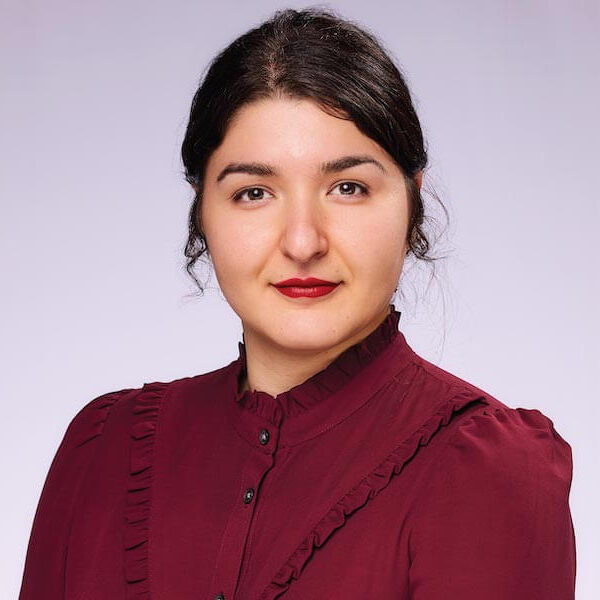
Dr. Maral Mousavi
University of Southern California
Goal: To validate the specificity and selectivity of point-of-care sensors for breastmilk to confirm the functionality of the sensors in clinical samples. Samples used for validation were exposed to Lithium and Acetaminophen.
Update:
Sample analysis has been completed.
Human Milk Polymorphisms Associated with Drug Metabolism

Dr. Digna Velez Edwards
Vanderbilt University
Goal: Extract DNA and sequence human milk samples exposed to sertraline (Zoloft) for relevant polymorphisms associated with drug metabolism.
Update:
50 breast milk samples exposed to sertraline had DNA extraction and genotyping/sequencing completed. Samples were genotyped for CYP2C19, with drug metabolizer phenotypes determined. The final analysis is in progress.
Concentration of Methotrexate in Human Milk

Dr. Shinya Ito
The Hospital for Sick Children, Toronto, Ontario, Canada
Goal: Determine the concentration of Methotrexate in human milk samples from parents who were prescribed this medication while lactating.
Update:
Serial breast milk samples exposed to methotrexate had pharmacokinetic analysis completed. Physiologically based pharmacokinetic modelling (PBPK) is in progress.
Vedolizumab and IgA Levels in Human Milk

Dr. Jesus Rivera-Nieves
UC San Diego
Goal: Examine if the drug vedolizumab (Entyvio®), a prescription medication for the treatment of moderate to severe ulcerative colitis and Crohn’s disease, interfered with the migration of antibody secreting cells (ASCs) to the mammary gland, thereby decreasing the amount of Immunoglobulin A (IgA) antibody levels in human milk.
Publication:
Urrete J, Mitra T, Boland BS, Bertrand K, Chambers C, Rivera-Nieves J. Vedolizumab Does Not Affect Antibody Secreting Cell Recruitment to the Lactating Mammary Gland of Mothers With Inflammatory Bowel Disease. Inflamm Bowel Dis. 2025;31(1):290-293. doi:10.1093/ibd/izae023
Remdesivir and GS-441524 Levels in Milk from COVID-19 Positive Lactating Individuals

Dr. Brookie Best
UC San Diego
Goal: Examine what concentrations of medications used to treat COVID-19 are found in breastmilk.
Publication:
Bertrand, K., Sepulveda, Y., Spiegel, B.J. et al. Concentrations of remdesivir and GS-441524 in human milk from lactating individuals diagnosed with COVID-19. Pediatr Res 96, 269–272 (2024). https://doi.org/10.1038/s41390-024-03053-2
Concentration of Etanercept in Human Milk

Dr. Brookie Best
UC San Diego
Goal: Determine the concentration of Etanercept in human milk samples from parents prescribed this medication during lactation. In addition, we evaluated child growth through medical record review and child neurodevelopment through maternal report questionnaires.
Publication:
Bertrand K, Rossi S, Wells A, Best B, Chambers CD. The Concentration of Etanercept in Human Milk and Infant Outcomes. J Rheumatol. 2023;50(5):712-714. doi:10.3899/jrheum.220724
Maternal and Child Outcomes Reported by Breastfeeding Women Following Messenger RNA COVID-19 Vaccination

Dr. Christina Chambers
UC San Diego
Goal: Evaluate a cohort of vaccinated, lactating, women for vaccine-related symptoms and their breastfed children for any non-serious and serious adverse events.
Publication:
Bertrand K, Honerkamp-Smith G, Chambers CD. Maternal and Child Outcomes Reported by Breastfeeding Women Following Messenger RNA COVID-19 Vaccination. Breastfeed Med. 2021;16(9):697-701. doi:10.1089/bfm.2021.0169
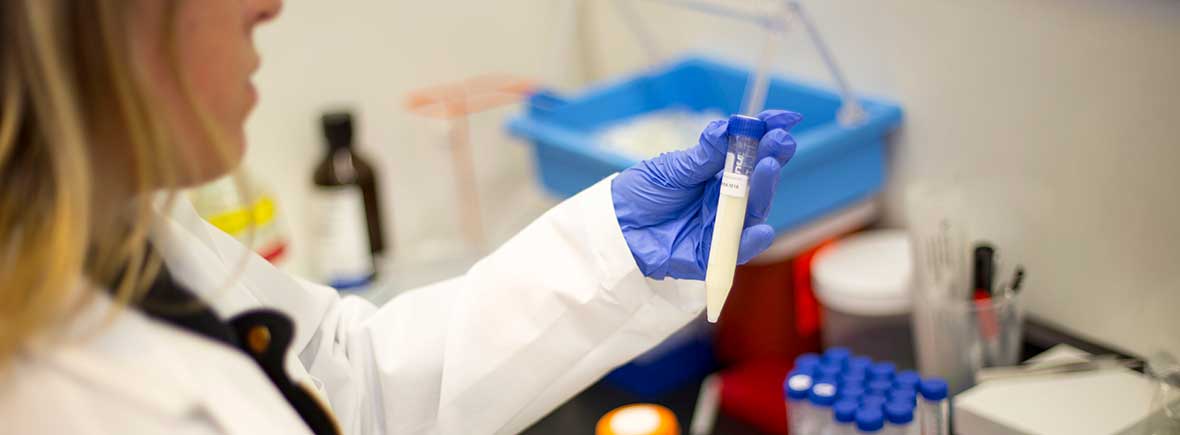
Metabolomics
Untargeted Metabolomics in Human Milk

Dr. Shirley Tsunoda
UC San Diego
Goal: Use human milk samples from unique women to characterize exogenous drugs, metabolites, and food using untargeted metabolites to better understand how these substances interact with each other, impact the health of the infant and mother, and impact milk composition.
Update:
2500 breast milk samples have been run for untargeted metabolomics. The final analysis is in progress.
Metabolomic and Exposomic Biomarkers

Dr. Robert Naviaux
UC San Diego
Goal: Evaluate if the chemistry and xenobiotic profile of human milk differs according to the developmental risk status of the breastfed child by utilizing the results from a maternal report questionnaire that screens the development of children in five different domains.
Publication:
Li K, Bertrand K, Naviaux JC, et al. Metabolomic and exposomic biomarkers of risk of future neurodevelopmental delay in human milk. Pediatr Res. 2023;93(6):1710-1720. doi:10.1038/s41390-022-02283-6
Untargeted Metabolomics of Exogenous Chemicals in Milk and Infant Transfer

Dr. Pieter Dorrestein
UC San Diego
Goal: Identify metabolites present in human milk using an untargeted Mass Spectrometry approach. In addition, evaluate what maternal and infant characteristics are associated with the metabolites identified and how maternal report of medication and substance exposures compares to the laboratory results.
Update: We have analyzed 600 samples for untargeted metabolomics, which is available as a deidentified dataset.
Publication:
Thomas S, Gauglitz JM, Tripathi A, et al. An untargeted metabolomics analysis of exogenous chemicals in human milk and transfer to the infant. Clin Transl Sci. 2022;15(11):2576-2582. doi:10.1111/cts.13393

Methods
At-Home Blood Collection in a Lactation Study

Dr. Christina Chambers
UC San Diego
Goal: To evaluate the comparability of using breast milk and blood samples collected at home to standard clinic-based methods and determine the feasibility of the Tasso-M20 blood collection device.
Prevalence of Nonserious Events in a Cohort of Breastfed Infants

Dr. Ann Kelly
UC San Diego
Goal: Determine the prevalence of non-serious events in infants consuming breastmilk whose mothers reported no exposure to any prescription medications, tobacco, or recreational drugs in the previous 14 days. These baseline frequencies provide a benchmark for rates of recent non-serious events in breastfed infants in the general population and can be used as a reference point for studies that examine adverse events in breastfed infants following maternal use of prescription medications or exposures due to other lifestyle habits such as tobacco or other substances.
Publication:
Bertrand K, Kelly A, Chambers CD. The Prevalence of Nonserious Events in a Cohort of Breastfed Infants. Breastfeed Med. 2023;18(1):43-47. doi:10.1089/bfm.2022.0245
Design and Mechanics of an Accessible Human Milk Research Biorepository

Dr. Gretchen Bandoli
UC San Diego
Goal: To discuss establishment of Mommy’s Milk, a Human Milk Research Biorepository, as a well-characterized, accessible research resource that can contribute to better understanding of the characteristics of human milk, and potential effects of maternal medications, substances, and other environmental agents on the health and development of the breastfed infant/toddler.
Publication:
Bandoli G, Bertrand K, Saoor M, Chambers CD. The Design and Mechanics of an Accessible Human Milk Research Biorepository. Breastfeed Med. 2020;15(3):155-162. doi:10.1089/bfm.2019.0277
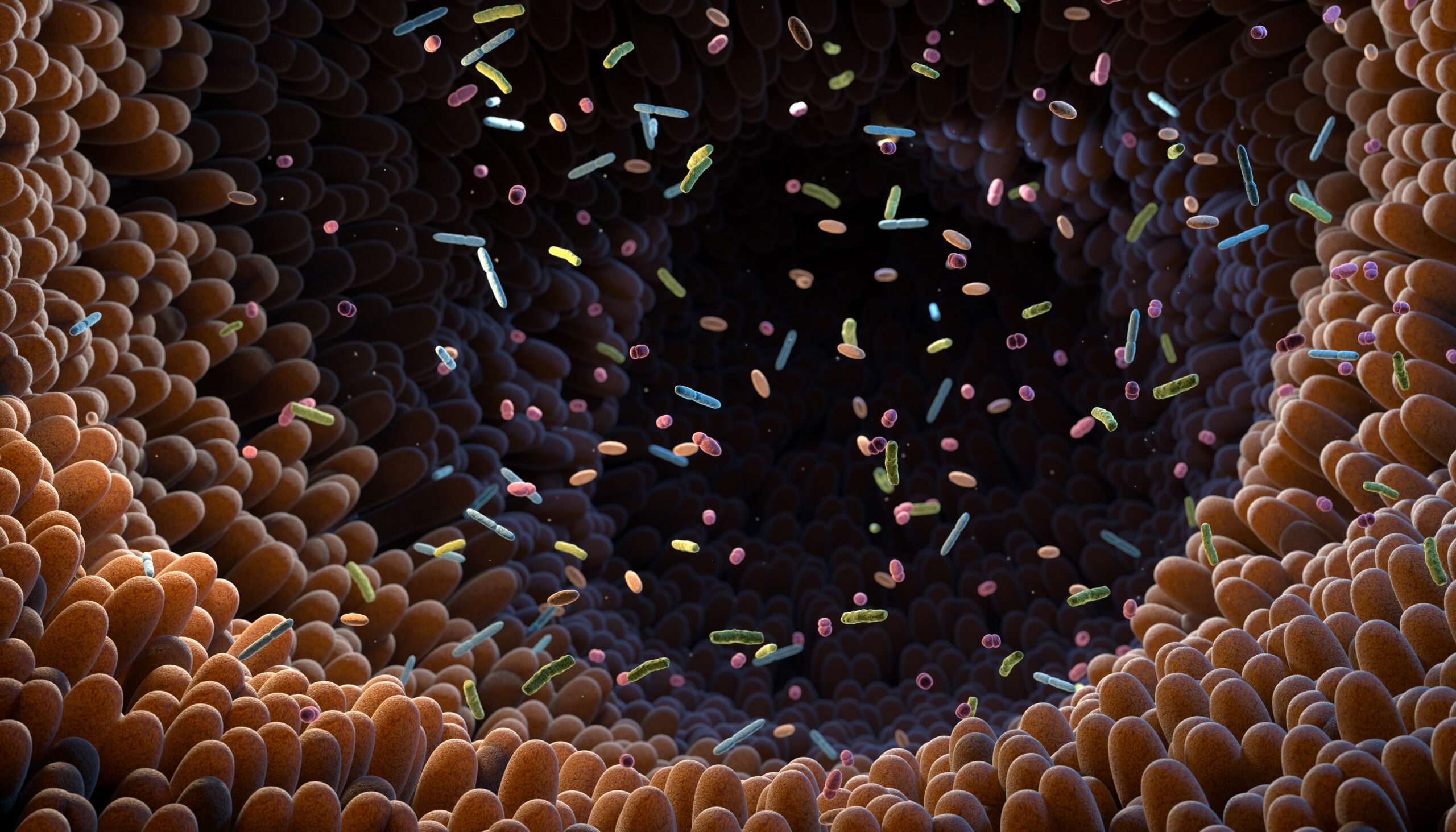
Microbiome
Rhythmicity of the Human Milk Microbiome

Dr. Kelley Baumgartel
University of South Florida
Goal: To explore the human milk microbiota for circadian rhythmicity among healthy maternal-infant dyads. Recent discoveries show a circadian influence on the gut microbiome; however, the relationship between these rhythms and the milk microbiome remains unknown. This study will explore the human milk microbiota for circadian rhythmicity.
Microbiome of Human Milk

Dr. Rob Knight
UC San Diego
Project 1:
Goal: Classify the microbiome of human milk. Profile the human milk samples to see which bacteria are present and the most abundant in the human milk microbiome. In addition, evaluate what intrinsic and extrinsic factors of lactating individuals may influence and potentially change the human milk microbiome.
Update:
We have analyzed 600 samples for the breast milk microbiome which is available as a deidentified dataset.
Project 2:
Goal: To determine any differences between fresh and frozen human milk samples. Fresh samples will be aliquoted with cryopreservative then frozen. This will be used in protocol development to study the microbiome.
